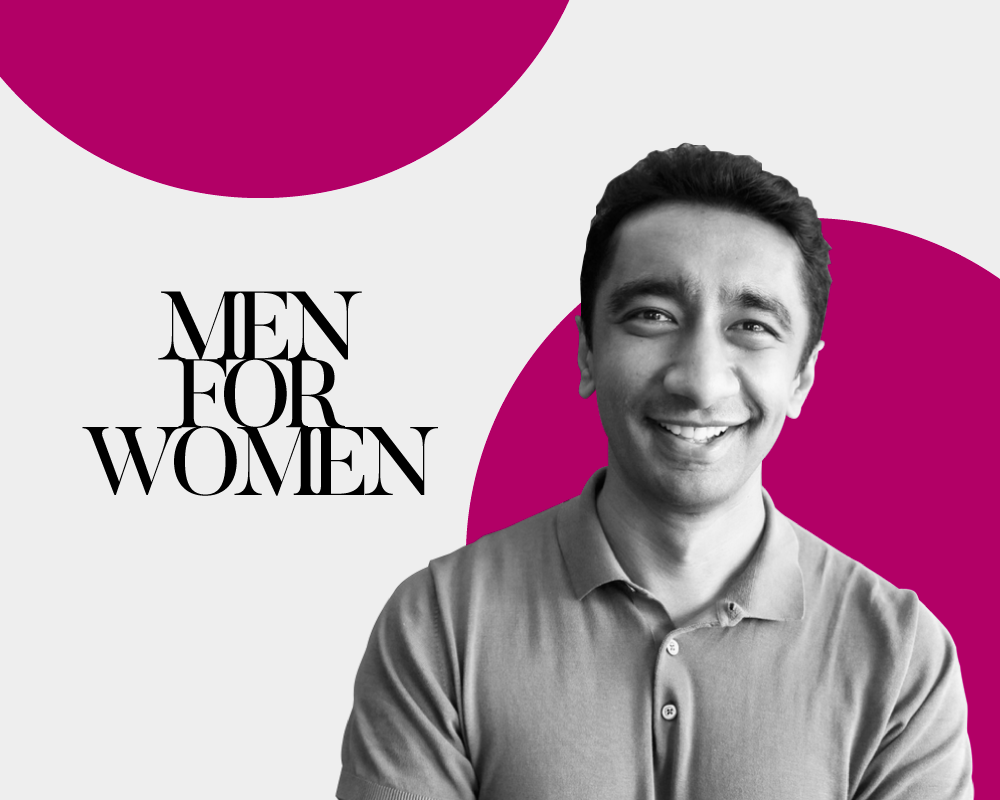What role do men have in the fight for women’s empowerment and gender equality? How can males participate in the uphill climb towards better female representation? Why is male allyship important? To answer these questions this International Women’s Day, we ask three male advocates what being an ally looks like for them.
Senthil Balan is committed to helping women harness their own profound potential. A member of the board of advisors at Lean In Malaysia, he channels his 21 years of professional experience across multiple industries into empowering women and helping them achieve success in their career journeys.
It was a quote from former US President Barack Obama during his 2019 visit to Southeast Asia that first sparked his passion for the cause. Speaking at a private event on leadership, he opined that women were ‘not perfect’, but ‘pretty indisputably’ better than men. The former president added: “I’m absolutely confident that for two years if every nation on earth was run by women, you would see a significant improvement across the board on just about everything.”

The comments rang true enough for Senthil: “You could look at countries around the world that are run by females. New Zealand, Germany, Finland, they’re all astoundingly well run. You don’t really find a badly-run country with a female prime minister or president,” he remarks.
Beyond world leaders, he also noted the prowess of female leaders in the realms of corporate business and political activism, citing former Pepsi CEO Indra Nooyi and female rights figure Malala Yousafzai.
At that moment, it would have been easy for him to pat himself on the back for having a relatively progressive outlook, let musings be musings, and move on. “I thought, ‘Hmm, I can just sit back and take the Obama comments, let it slide and hope the world figures it out’, or I could take action and play my part.”
He chose the latter.
Helping women see their potential
After being introduced through friends, Senthil got involved with Lean In Malaysia. Through the organisation, he began speaking to groups of women who had left their careers to become stay-at-home mothers, and who were now hoping to reenter the workforce.
“I loved it,” he said. “It was so inspiring to see these amazing women in the audience. So talented, so much ability, so well educated, but they had doubts about themselves.”
“Why do they have doubts? They’ve had the hardest job on the planet being stay-at-home moms, right? No male can do that job. So if they can do that and do it well, why are they coming to the workforce with that kind of uncertainty?”
 Struck by how the women he encountered would underestimate their own power and potential, he made it his mission to change this prevalent mindset.
Struck by how the women he encountered would underestimate their own power and potential, he made it his mission to change this prevalent mindset.
“Lean in to your strengths and possibilities, not your fear and insecurity,” is the mantra he espouses in his coaching sessions, seminars and conferences for Lean In.
Encouraging female individuals to tap into their strengths, he adds that it’s not just themselves that benefit when they offer the world their gifts and abilities. “Don’t just do it for yourself. Imagine the world if all the females leaned into this, it would be a much better world.”
Female representation at work
Studies over the years have suggested that companies with more women in senior management positions perform better and increase their bottom line. “It improves profitability, enhances brand recognition, and increases satisfied customers,” Senthil observes.
But it isn’t and shouldn’t be central to why we aim for equal representation at work. “Diversity isn’t a metric,” he says. Treating people fairly and equally, and shedding unconscious bias, is “just morally the right thing to do, period.”

So how can men support women as allies? Senthil shares three roles males can play: Champions, Sponsors, and Amplifiers.
A Champion for women’s empowerment sends meaningful messages to a wide audience, willingly and visibly deferring to his female colleagues in meetings and events. A Sponsor, on the other hand, provides support for female colleague’s advancement by pointing out opportunities and recommending their work to others. Finally, Amplifiers work to have women’s voices heard and their views represented.

“I would say to the males, don’t let the labels confuse you,” he clarifies. “Don’t just think about it, know who you are and act on it.” Sometimes, getting too caught up in thinking and talking about the issue can be the greatest impediment to actually solving it.
For Senthil, being a part of Lean In Malaysia has the added advantage of making sure he doesn’t become complacent in taking real action. “It’s to keep me honest and keep me moving until it becomes motor memory,” he says.
Why the unceasing dedication to actively engage in the cause of women’s empowerment, one might ask? Senthil points to his two young nieces, for whom he wants to ensure there’s a better world for.
“If there’s one thing I can do as an uncle for them, that’s my little part. I may not change the whole world, but I can be one piece of the puzzle that will change the whole world.”










